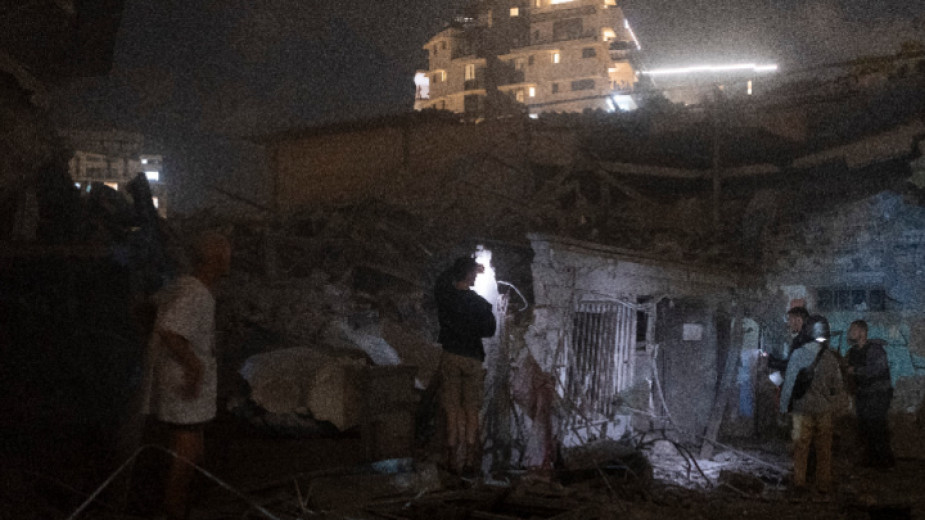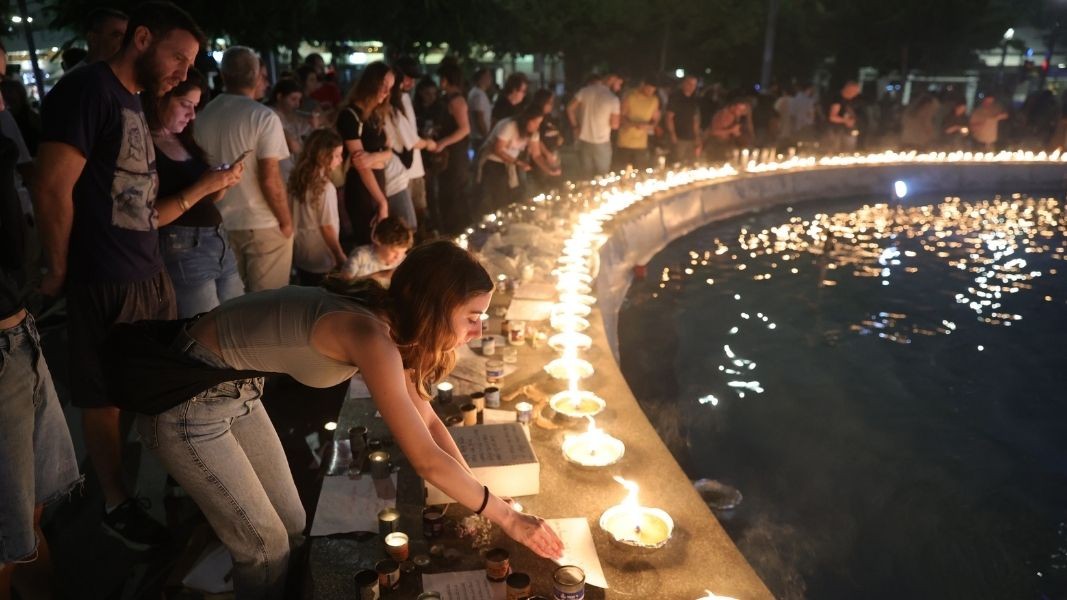
Israel continues to mass troops close to the Gaza strip in anticipation of the ground offensive against Hamas. The war is a terrible thing in the eyes of the Bulgarians who are watching events unfold first-hand. “Israel buried the dead and is fighting on several fronts. There are waves of protests worldwide. The feeling is that the conflict is spilling over its regional framework. That is worrying,” says, in an interview with the BNR, Theodora Asher, describing the situation some ten days after “the biggest act of terror in the history of Israel”. She herself went to one of the points of access to the Gaza strip, and what she saw was surreal:
“Maybe 100,000 people have already been evacuated from the settlements close to the Gaza strip on the Israeli side. On the Gaza side there are more than 2 million and they too are evacuating – a humanitarian corridor has been opened for the population concentrated in the town of Gaza and the Northern part of the strip to go South towards the Gaza river. On the Israeli side – the civilian population in the territories which were attacked directly, including two towns, was evacuated. Now there is a war zone there, it is empty and deserted – the land, the sky and the lull with the boom in the background – it is a surreal picture. To the north, within a 4-kilometrec radius the region is a closed war zone and access is prohibited, and the local population spend most of their time in the bomb shelters. Otherwise what is happening on the national territory of Israel is unheard of – the entire people is mobilized as one.”
Another Bulgarian – graphic designer Paloma Lantzman – also says civic society in Israel is extremely mobilized:
“The shops are empty, but not because there were no supplies, but because the entire people of Israel bought everything to send to the soldiers and to the people going to the front line.”
The Bulgarian lady raised her daughter in Tel Aviv, and is not planning to leave the country:
“My daughter grew up here – she was in the army, and now we are part of life in Israel. What is left is my great love of Bulgaria which I go back to whenever I can but this is not the time – people come together in a situation like this.”
Mrs. Lantzman does not keep in touch with the Bulgarian community in Tel Aviv, but she does follow the information of the Bulgarian embassy there, as well as the other official sources of information – the media has not stopped working.
“Here, the information system is well regulated and you can obtain information from all around. Bulgarians with dual citizenship, and that is most of them, I don’t think they are planning to return. It is mostly the tourists who are going back, there is no way they can stay. 
I think they are organized – I know flights are announced and they are able to buy tickers from different airlines which have kept up flights, and information like that is given on the website of the Bulgarian embassy. To tell the truth, I am not seeing any panic. Of course, from a purely psychological point of view, for a person from Bulgaria who is not familiar with this reality, it is a shock.”
The stress after the first attacks by Hamas against the peaceful population of Israel has not abated, says Paloma Lantzman and describes what life is like under fire:
“We lived in an apartment in one of the elite parts of the city – though it is not the capital of the country, Tel Aviv is the biggest city with the biggest part of the population. We have special safe rooms in the apartment blocks where we can go without having to run to a neighbourhood bomb shelter, as is the case with the older apartment buildings. It is very difficult, because psychologically speaking all this is really stressful – getting an application on your phone to warn you wherever you are – that is awful,” the Bulgarian lady says.
The situation is particularly traumatic for children:
“It is terrifying, it is terrifying! I believe this is the biggest trauma a war can inflict because they are broken flowers who will never in their lives be able to extract this pain, this stress from their hearts.”
Interviews by Diana Doncheva, Horizont channel, BNR
Translated and posted by Milena Daynova
Photos: BTA, BGNES
Exactly a month after the Bulgarian National Radio solemnly celebrated its 90th anniversary, history continues its dialogue with us, its authors. With a special event on February 25, the exhibition "90 Years of the Bulgarian National Radio - The Radio..
Exactly 3 years ago, on February 24, Russia’s invasion of Ukraine began – an event that woke up Europe 77 years after the end of World War II and called into question one of the main goals of the EU – preventing a new armed conflict on the continent...
The festive service for the consecration of the new Bulgarian Orthodox church in London is led by His Holiness Daniil , Patriarch of Bulgaria, who also officiated at the Ressurection Vespers on Saturday. Hundreds of lay people-official guests and..

+359 2 9336 661
